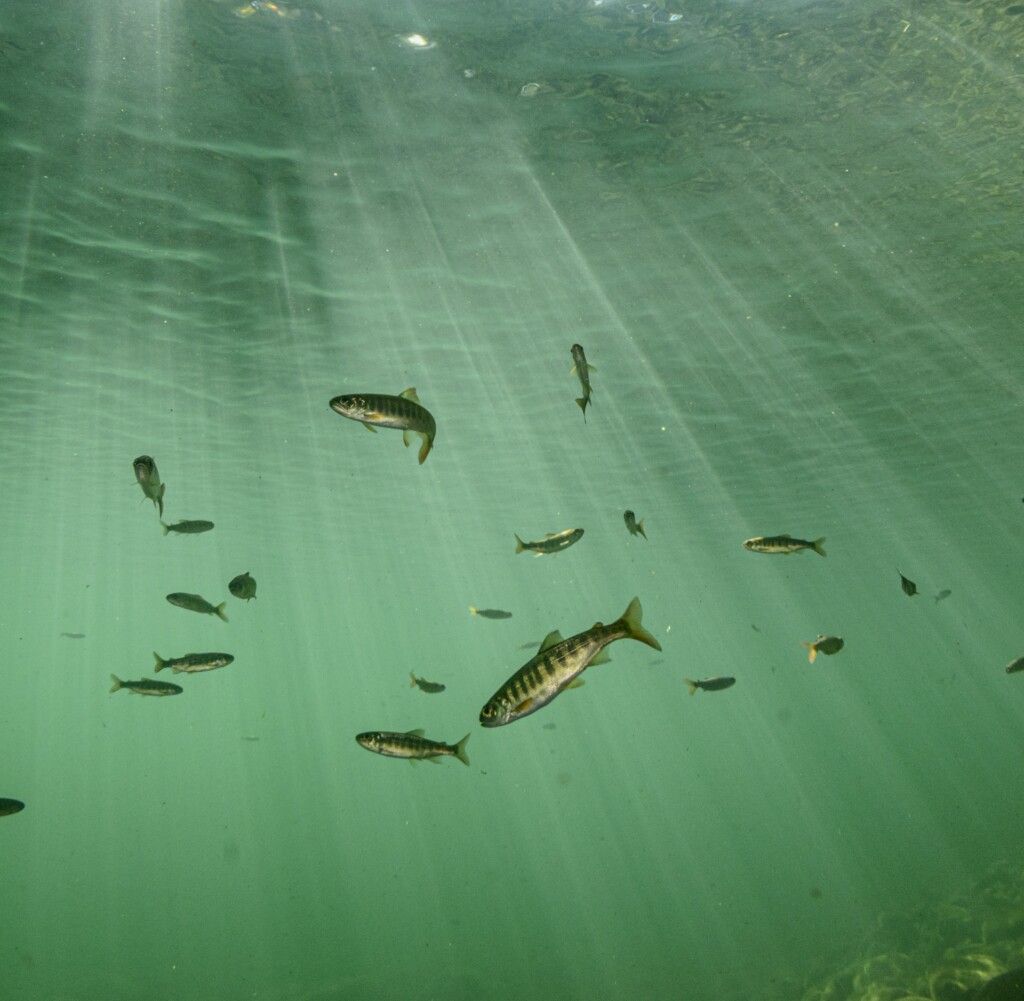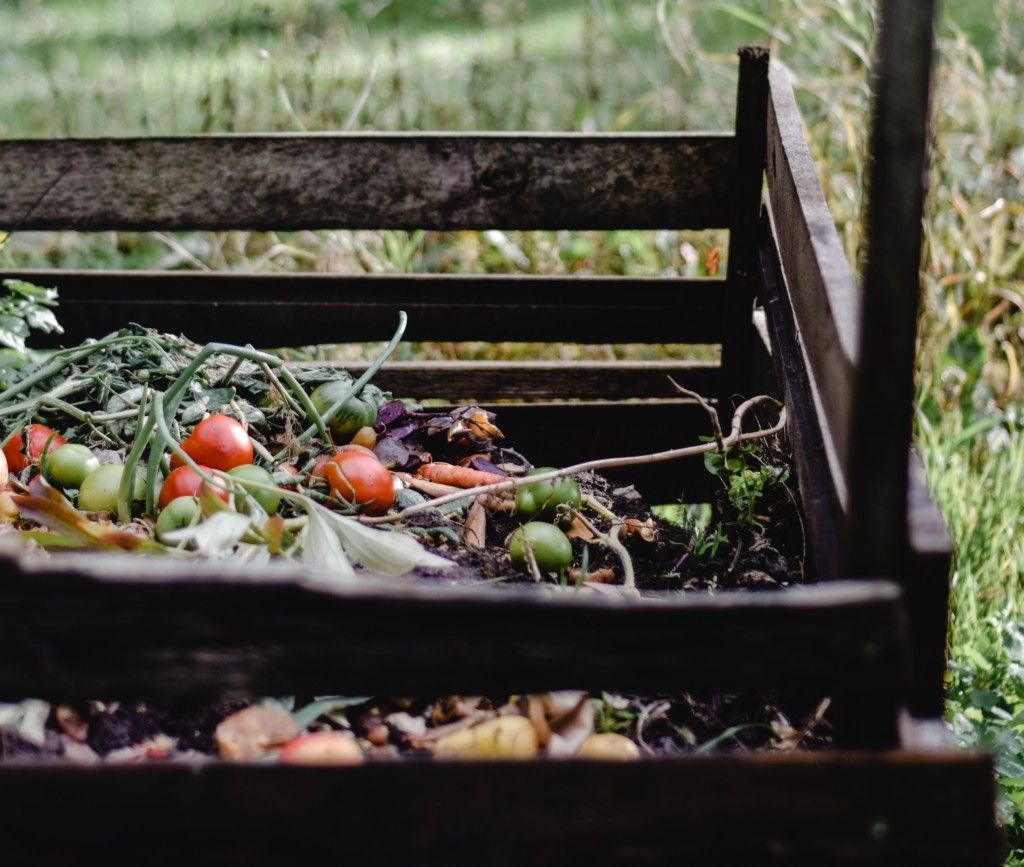By composting you avoid this and the finished product is great slow releasing fertilizer and soil improver for your garden. By following a few simple guidelines and having a place for your heap, you can easily get started with composting.

Composting prevents food and garden waste breaking down into methane, which is a potent green house gas, thereby reducing your carbon footprint and subsequently climate change pressures that salmon face.

Incorporating compost in your garden promotes healthy rich soil that holds on to moisture better and reduces the need for fertilizers, reducing the impact of your garden on nearby aquatic environments.
First, decide which method you would like to use - The simplest is to have a compost bin or a heap at the far end of the garden to fill and aerate on occasion, but you might want to learn about other methods, check out these fact sheets put together by the Compost Education Centre:

Get yourself set up - Bins can be purchased from gardening centres, home improvement stores or from community composting organizations like the Compost Education Centre in Victoria or the Vancouver Compost Demonstration Centre. You can also create a place for your heap using lumber and fencing material, or things you may already have on hand (check out this post for 35 ideas), or just have a free form pile.
When choosing your bin (or lack of one) you will want to consider the type of materials you plan to compost. For example, if it is just yard waste you plan to compost you don't necessarily need a solution that is pest proof, but you would want something pest proof if you do plan to include kitchen scraps.
Simple bins, like the one pictured on the left, are designed for new material to be added at the top by removing a pest resistant lid, and for finished compost to be harvested from a door in the bottom.
Making 'black gold' for your garden - As a general rule for producing healthy rich compost, alternate layers of 'brown' - or carbon rich materials - such as dry leaves, paper, straw, with layers of 'green' - or nitrogen rich materials - such as fresh grass clippings and kitchen scraps. You want the ratio of green to brown material to be about equal. Everything should be turned occasionally and kept moist to ensure proper conditions for the microbial breakdown process.

There are a few things that you should avoid putting in your heap so that it won't attract pests, create odour, spread weeds or result in a compost that would be unhealthy for including in a veggie garden. The table below shows what to compost, coded as as green or brown categories by text colour, and what not to compost.
| Great for compost | Do not compost |
| Fruit and vegetable scraps | Meat/bones |
| Tea bags and coffee grounds | Dairy products |
| Rinsed egg shells | Bread or cooked food |
| Fallen Leaves | Weeds that have gone to seed |
| Grass clippings (fresh/dry) | Weeds that have rhizomes |
| General garden waste (fresh leaves/woody) | Diseased plants |
| Shredded newspaper/cardboard | Cat and dog waste |
| Human or pet hair | |
| Chicken, cow or horse manure | |
| Untreated wood saw dust/chipped | |
| Straw |
Watch and learn - A introductory video about simple backyard composting made by City Farmer.
If you don’t have the desire or space to compost on your property, you can:
Invest in a counter top compost device - If you are really short on space and time, there are now counter top compost devices such as Lomi, which accelerate the compost process through grinding and heating. These devices, which use electricity, can turn kitchen scraps into 'dirt' in a few hours.
Use your municipal composting – your green bin. Learn what can go in your green bin and see what happens to the contents of your green bin.
Check out the Compost Education Centre in Victoria, their website contains all sorts of helpful educational fact sheets on different methods of composting and other tips for your garden. They also offer workshops.
Visit the Vancouver Compost Demonstration Centre and pick up a cheap backyard compost bin or worm composter
Photo credit: Eva Elijas from Pexels, Nicole Christiansen